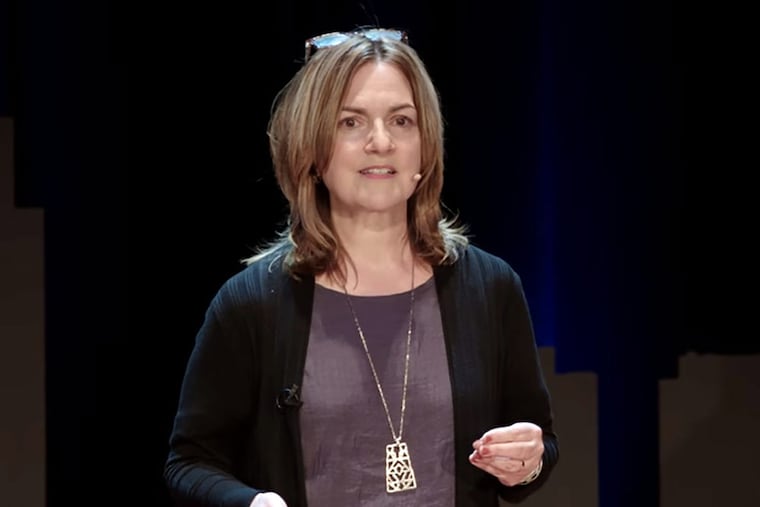
I've written this column for 17 years, and I've never asked for a favor until now.
So - deep breath - here goes.
I'd like you to watch a video that has just been released by TEDxPhiladelphia of a talk I gave on the value of listening.
Not just when it's easy, the way it is when the person we're listening to is telling a fun story.
And not when it makes us feel content and reassured, the way it can when we listen to someone with whom we agree.
And certainly not when there's something in it for us, the way there is when we listen to, say, a potential boss as he describes the job we hope he'll offer us.
I'm talking about listening with compassion, without judgment, and with an open heart when it feels impossible to do so. The way it does when we listen to those whose opinions couldn't be more different from our own. Whose politics, behaviors, or ideals make us want to move off the planet. Whose manner of speech or dress sets our teeth on edge.
Basically, I'm talking about the kind of listening that requires us to deliberately let go of our right to be right. When we do, we're able to grasp onto things that are so much better:
Kindness. Compassion. Connection.
When we suspend the judgments that support being right, we have a shot at changing the many worlds we inhabit: our homes, workplaces, communities - the country, even.
This is really hard to do, especially for me.
I love the laziness of being right. It lets me off the hook for doing the hard work of being a grown-up, the kind who doesn't act as if the world should revolve around me, my opinions and needs. The kind who knows that to live in a better world, we all have to hear each other out, respect each other despite our differences and walk toward each other. No matter how imperfectly.
Speaking of imperfection, here's an irony for you.
My TEDx Talk went online Wednesday. The very next day I got into an email flame war with a reader over his nasty takedown of someone I'd mentioned in a column. Instead of responding respectfully, I took the bait. I'm too embarrassed to share details, but thank God the voice in my head finally called to me.
"Yo, big-shot TEDx Talker," it said. "Whatever happened to giving up your right to be right?"
I emailed the reader, apologized for losing my cool and asked if we could have a phone conversation, because I was interested in hearing why he thought the way he did. And I also wanted to explain to him the reasoning behind what I wrote, if he was up for hearing it. He was game, and we talked for 20 minutes.
The talk got passionate, but stayed respectful. We found that we agreed more than disagreed about the bigger issues that underpinned our individual opinions. By the end of the conversation, we were laughing.
"I still don't like your columns," he said cheerfully.
"Hey, sometimes I don't like them either!" I said, thinking of the ones I wish I could take back.
The exchange reminded me that the digital form of social engagement - Twitter, Facebook and, for example, the comments beneath stories that run online - can lead to social estrangement. Its anonymity and facileness can distance us from the fact that real people exist behind the cute handles and pithy posts.
As much fun as it can be to mix it up with each other, there's more potential in our communication when we give up a little bit of our right to express ourselves so we can hear what the other person is saying.
I rue the times I didn't, especially with loved ones. Not because I was necessarily wrong but because I chose being right over being connected.
On a national scale, that sad choice is evident in our bellowing arguments and campaign debates about gun control and the economy, terrorism and family values. Citywide, it's evident every time someone settles a difference with a gun instead of conversation. In our own families, we slam doors instead of asking: What makes you feel that way? Can you tell me more?
My lofty hope is that my TEDx Talk might help us start thinking differently about how we listen.
Not because the talk is about me, but because its messages grew out of conversations I've had over 17 years with everyday people whose stories I've been so lucky to tell in this column. They have taught me what good listening looks like in action, and how it can save us when nothing else can.
If you like the talk, please share it. And if you don't, I'm all ears.
Honest - I'll listen.
Email: polaner@phillynews.com
Phone: 215-854-2217 @RonniePhilly